Andrew Talansky: Haters gonna hate
Cannondale-Drapac rider on his return from rock bottom
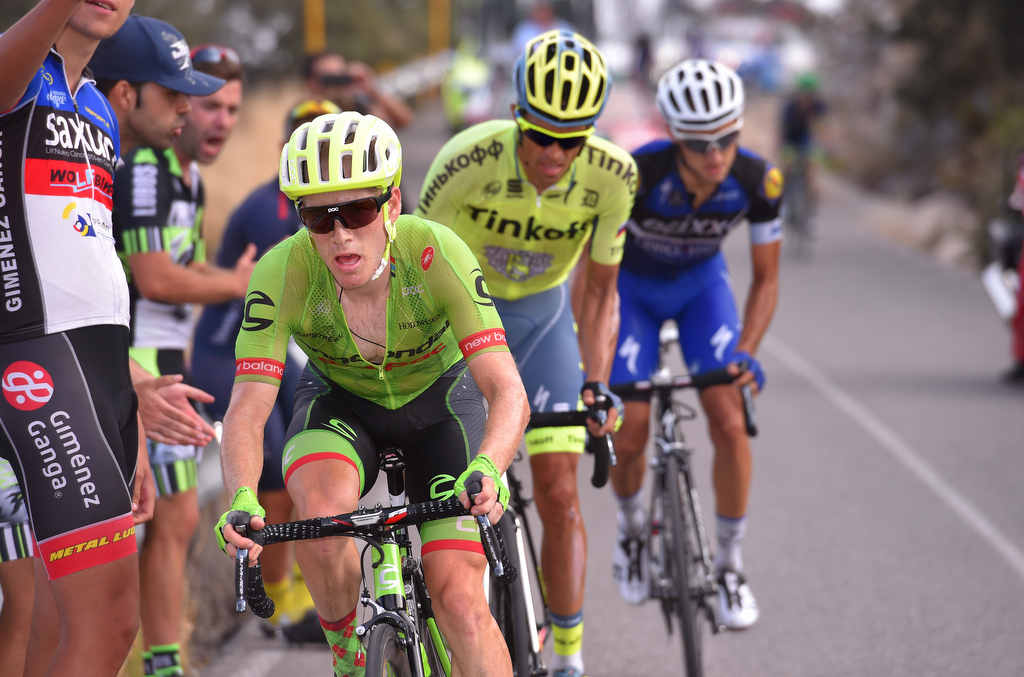
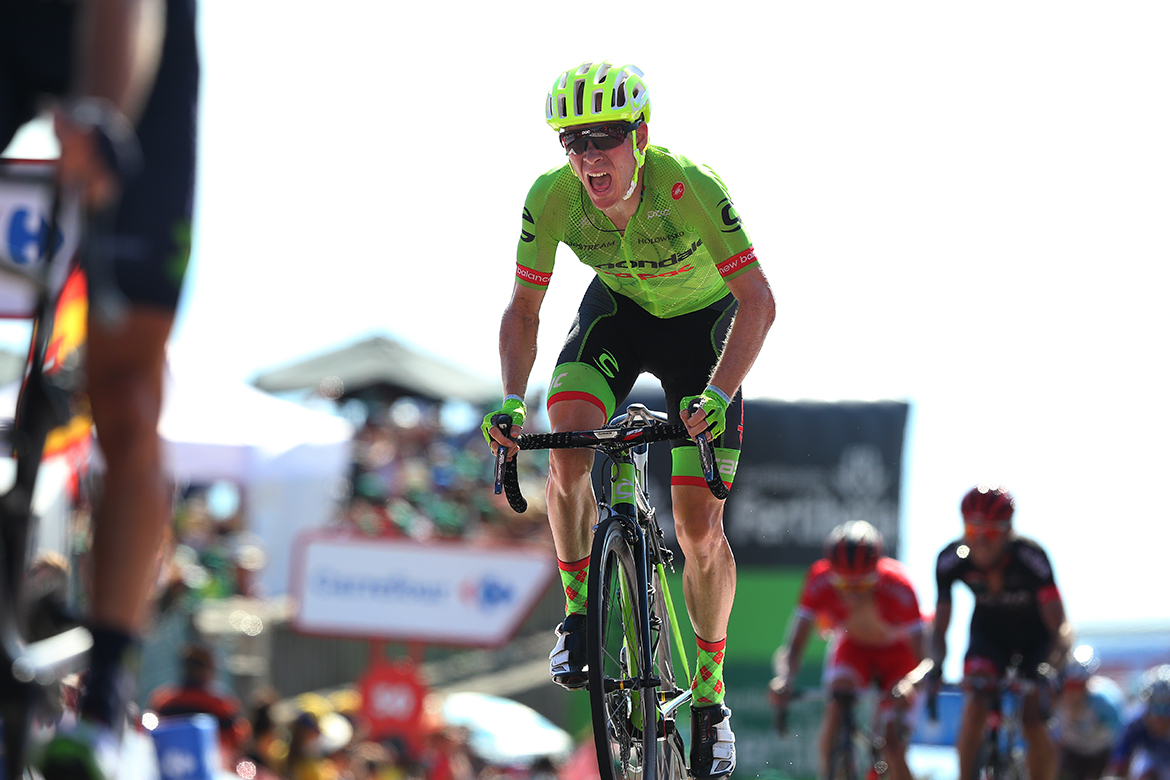
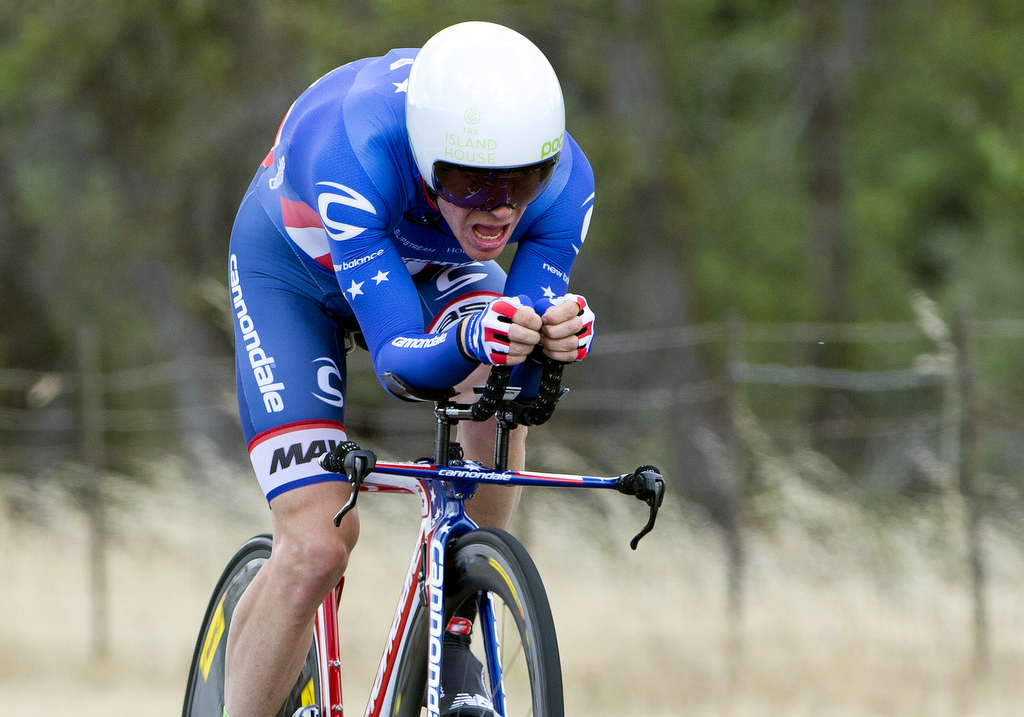
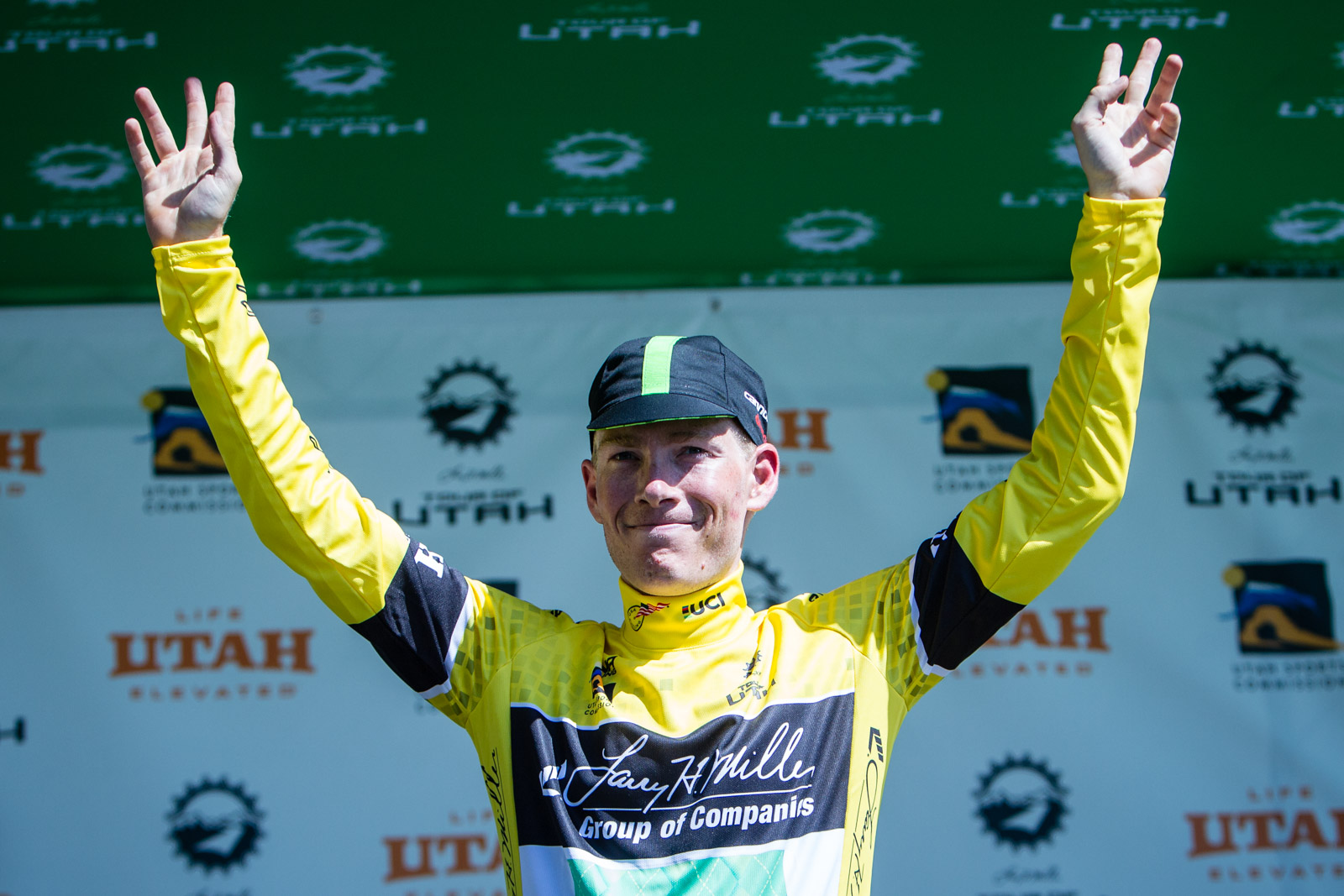
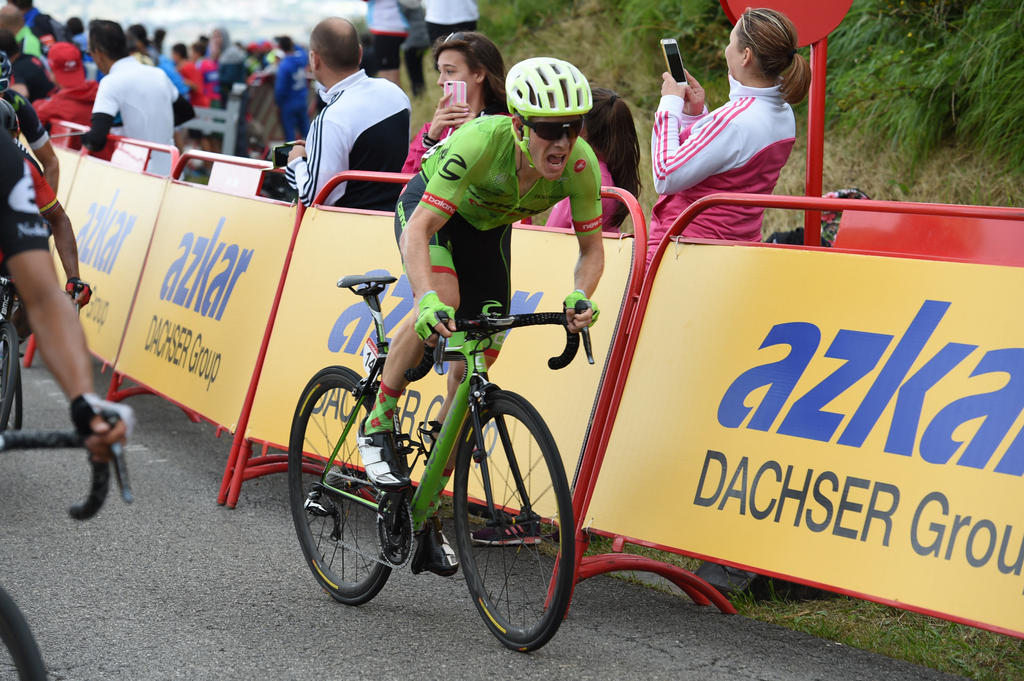
Taylor Swift lyrics crop up rarely in interviews with professional cyclists but Andrew Talansky breaks out with a snippet of the chorus from 'Shake it off' as he sits down with Cyclingnews at Cannondale-Drapac's winter training camp in Catalunya.
"Haters gonna hate, hate, hate," he semi-sings, laughing apologetically, explaining that rediscovering his penchant for silencing his doubters has led him back to his best after hitting 'rock bottom'.
The pugnacious American doesn't necessarily know precisely who the haters are – "it could be a fan, could be another rider, another team" – but he knows he wants to defy them.
"I'm not going to lie, I do enjoy proving people wrong. I used to take a lot of motivation from people saying 'you can't do that', 'that's a bit ambitious', or 'who do you think you are to be able to do that?'. For me it was about tapping into that again and embracing that way of thinking."
Talansky seemingly had the world at his feet when he beat Alberto Contador and Chris Froome to the Criterium du Dauphine title in 2014. Top 10's at the Vuelta a Espana in 2012 and the Tour in 2013 had marked him out as a big hope for the future, and that Dauphiné was the breakthrough moment.
It would, however, prove to be the moment his career began to slide downhill.
"I think I thought I needed to change," he says. "I thought, 'ok I've won the Dauphine, this is maybe what people expect me to be like or what you're supposed to be like'. It wasn't even pressure, but instead of just enjoying it, you think, 'I've made it to this point so this is what it should look like'."
Get The Leadout Newsletter
The latest race content, interviews, features, reviews and expert buying guides, direct to your inbox!
Talansky went into the 2014 Tour in the form of his life, but crashed and, despite a memorably spirited resistance just ahead of the broom wagon on stage 11, he was forced to abandon. An unimpressive Vuelta followed, and though 2015 yielded some promising results on paper – the American time trial title, 10th at the Dauphiné, and 11th at the Tour – it was "nowhere near what I'm capable of".
The year ended badly as sickness and exhaustion forced him to abandon the Vuelta, and the malaise continued through the early portion of 2016, leading to the Tour de France being taken off his schedule.
"From when I had to leave that Tour, all the way through the 2015 season, and all the way through the spring of 2016 – those results don't reflect what I'm capable of or the passion I have for the sport," says Talansky.
"Honestly from there [2014 Tour], it was downward. It's like anything in life, if you get down on yourself, you're negative about things, that can snowball – and it did. I had these expectations, hopes and aspirations, and I just failed to meet them – that's as clear as day.
"During that process you're trying to find the positives, but what you really need to do is be realistic and say 'no, you're failing'."
Turning point
Once Talansky realized he'd hit rock bottom, things began to change, and that moment came at this year's Tour de Romandie in late April.
"For whatever reason, I just had this feeling I was at the bottom, and there was no lower to go," he says. "I was almost last in the prologue and then on stage one I was dropped by 150 guys. From being top 10 in the Tour and winning the Dauphine, to getting dropped by 150 guys – you're not going any further down. I said 'ok there's nothing more to lose'." The train returned to the tracks at the Tour of California, where Talansky was nominally working for Lawson Craddock but ended up fourth overall thanks to a time trial where he was beaten only by Rohan Dennis – "the first time I'd felt like myself in almost two years".
Talansky then went to the WorldTour-level Tour de Suisse and finished fifth overall. The indication was that he was on course for a decent Tour de France, but the announcement soon came that the problems he'd encountered – including private family matters – meant the team would instead shift his focus to the Vuelta.
After winning a stage and finishing third overall at the Tour of Utah, he produced an unassuming yet impressively consistent ride to finish fifth in Spain – his first Grand Tour top five. It was official: he was back.
"It was about letting go of the expectations, both my own and those of others, and embracing what got me into the results I achieved before," says the 28 year-old.
"Maybe up to that point I'd never had a period of time that tough, but if you look at any 15-year career, it's just numerically impossible that every year is fantastic. I experienced that and I think I've come out better for it.
"Now, I've hit a new high in a different Grand Tour, and in my mind that's the start, heading in an upward trajectory again. Rather than trying to fight back to a level, it's about trying to build. It's not about getting back anywhere, it's about seeing how much further I can go. That's motivating and exciting. I think I'm better equipped to do that now."
California and the Tour
Talansky is confident his resurgence in the second part of 2016 has laid the foundations from which he can kick on in 2017 and achieve what might have been expected of him in the aftermath of that Dauphine victory.
After tearing into this season early on at the Tour de San Luis, desperate to show he was 'on the way back', Talansky will ease himself more gently into the next season – not least because he'll become a father in February.
The Tour will return to its previous position as the focal point of his calendar, though Talansky hopes to be nearing his best form as early as the Tour of California.
After outlining 'consistency' as his key buzzword for the season and stressing the need to avoid becoming fixated on specific results, he allowed a moment of weakness.
"Winning California, actually – you can write that. A lot of races people say they want to win, but California I really want to, and I think I can win it.
"We've come up with programme that allows me to focus on California and put me on an upward trajectory to the Tour, which is difficult to do but California is a really big goal for me and the team."
The ultimate yardstick, however, will always be the Tour de France.
"I said before the Vuelta that I never felt like I'd put together three weeks I was capable of, and there I did. Now I want to go to the Tour and do the same thing.
"I've learned you're never going have a perfect run, but it's three weeks long, and I just want to put together the ride I'm capable of this year."
Chris Froome will once again be the man to beat in July, the Briton having claimed three of the past four editions thanks in part to the vice-like grip his Sky teammates have exerted on proceedings.
"Someone like Froome can show up and say 'if I'm 100 per cent and don't crash I'll win the tour'," notes Talansky, though he has vivid memories of being alongside the Sky rider as he was left behind, unsupported, on a breathless stage 15 of the Vuelta this year.
"You don't necessarily have to be better than someone to put yourself in a position to get a great result. It's good when it's unpredictable because it creates opportunities, and that's what I have to look for in a race like the Tour.
"I have to focus on racing my race. I'm not at a level when I can say 'I'm going to go head to head with Froome on Alpe d'Huez'. That said, it doesn't meant it's not possible put yourself in a position to do it."
All he needs is someone to tell him he can't.
Patrick is a freelance sports writer and editor. He’s an NCTJ-accredited journalist with a bachelor’s degree in modern languages (French and Spanish). Patrick worked full-time at Cyclingnews for eight years between 2015 and 2023, latterly as Deputy Editor.
